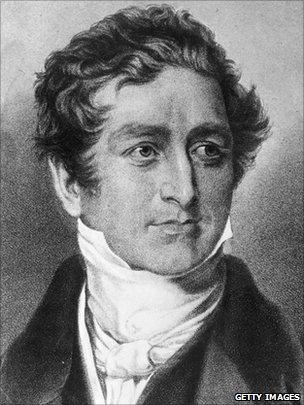Could we tolerate zero tolerance?
- Published
- comments
David Cameron has said tackling the "broken society" is back at the top of his agenda following last week's riots.
As David Cameron promises to confront what he calls the "slow-motion moral collapse" of parts of British society, he also suggests that "we haven't talked the language of zero tolerance enough" and rails against the "twisting and misrepresenting of human rights that has undermined personal responsibility".
These are phrases which will undoubtedly go down well in communities reeling from the lawlessness of the looters and arsonists, but is the prime minister hinting at something more radical - a move from a traditionally British to a US style of policing and justice?
Is he suggesting that the principles of Robert Peel don't work when it comes to dealing with inner-city gangs?
We have been here before, or course. In the 1990s "zero tolerance" was hailed as the answer to urban crime following a police strategy in New York City introduced by Bill Bratton, the then Commissioner of the NYPD and now being employed as an advisor to David Cameron.
He introduced a policy of responding with criminal charges to even the most minor offences in segments of the Big Apple for certain periods.
This model coincided with a 73% fall in homicides and a 35% reduction in overall crime, prompting some to claim that "zero tolerance" was the magic bullet for urban criminality.
'Exercise of persuasion'
It remains questionable how much the falls in crime in New York can be attributed directly to the aggressive approach to petty crime.
Certainly, some of the people picked up for minor offences turned out to have a history of much more serious offending. Their temporary incarceration arguably prevented them from engaging in gang violence.

Robert Peel defined the modern police force
But just as the crack cocaine epidemic had driven up the murder and violent crime rate in the 80s, some suggest its decline in the nineties was a more convincing explanation for the big falls in crime.
Even Bill Bratton himself said in 1998 that "zero tolerance is neither a phrase that I use nor one that captures the meaning of what happened in New York City". Policing is complex and it would be a mistake to imagine that the policy alone offers some simple panacea.
Nevertheless, the phrase became hugely popular among British politicians of left and right during the 1990s. But for all the rhetoric, it was less of a philosophy and more of a weapon among many in chief constables' armoury against urban criminality.
The point was (and is) that policing in the UK is based on a "service and consent" model rather than the "crime control" model familiar in the United States.
The Principles of Policing introduced by Robert Peel in the 1820s emphasise the community-based rather than authoritarian approach that has been the bedrock of our police services (as opposed to forces).
He said that police should "use physical force to the extent necessary to secure observance of the law or to restore order only when the exercise of persuasion, advice, and warning is found to be insufficient" and famously said that officers must at all times "maintain a relationship with the public that gives reality to the historic tradition that the police are the public and the public are the police".
It was that idea which led to the unarmed British bobby touring his beat, in contrast to the tooled-up cop charging around. Our consensual system, officers working with a community rather than against it, is a highly valued part of our national life.
Honour and obey
But there are some who now question whether urban Britain's US-style gangsters require US-style cops with pistols and a ruthless nature.
On Hackney's notorious Pembury estate today, I met pensioners too scared to talk publicly for fear of reprisals from the gangs.
They were cowering behind the security grilles and bars which envelop the senior citizens centre, but told me privately they thought it was time the police carried guns and used them. "That's the only thing they'll respect", one woman told me.
One side-effect of the US crime control model, though, is that it tends to destroy community trust in the police.
Robert Peel knew that when he said that "the ability of the police to perform their duties is dependent upon the public approval of police actions" and that police "must secure the willing co-operation of the public in voluntary observation of the law to be able to secure and maintain the respect of the public."
There is evidence suggesting that the less respectful police are towards suspects and citizens generally, the less people will be inclined to comply with the law.
It is not simply that police must be regarded as legitimate in order to obtain the co-operation of the public, but that a legitimate police institution fosters obedience to the law itself.
David Cameron doesn't make it clear what he means by "zero tolerance". He talks of speedy justice and equally speedy efforts to clear up vandalism. Who could argue with that, so long as both are effective? But zero tolerance policing? I wonder if Britain would tolerate it.